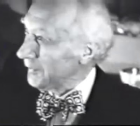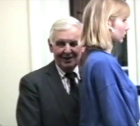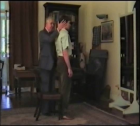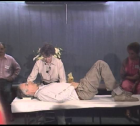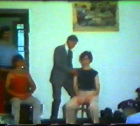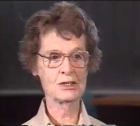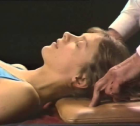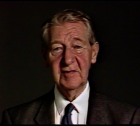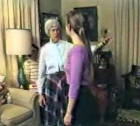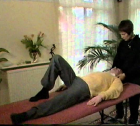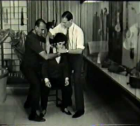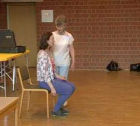Evolution of the Alexander Technique
- History
- Books
- Videos
- Quotes
For in the mind of man lies the secret of his ability to resist, to conquer and finally to govern the circumstances of his life.
- F. M. Alexander
The Beginning
Frederick Mathias Alexander (1869–1955), founder of the Alexander Technique, was born in Tasmania, Australia. His early acting career was interrupted when he started to become hoarse and lose his voice when performing on stage.
The doctors could find nothing physically wrong with him, and he was advised to rest his voice. Alexander’s voice would return to normal until he took the stage, only to lose his voice again.
Through years of extensive experimentation and patient self-observation Alexander discovered that there was a disconnect between what he assumed he was physically accomplishing and what he was actually doing. He found out that when he spoke he had excessive muscular tension as he pulled his head back and down, compressing his larynx and spine, contributing to the eventual loss of his voice.
Alexander concluded from all of the research on himself that mind and body were indivisible. Through a series of principles he developed, Alexander not only prevented his loss of voice, but improved his posture and ease of movement along with a profound improvement to his health and well-being.
International Growth
Alexander opened a centre in Sydney and began teaching his discoveries to others through direct and unique hands-on experience. In 1904, Alexander was invited to London, England to share his work. Although he made a number of trips to New York and Boston, he made London his home and eventually began training Alexander Technique teachers in 1931. He continued teaching until his death in 1955.
Many celebrities of the day sought out Alexander for private lessons. They included the great English actors Sir Henry Irving, Viola Tree, and Oscar Asche, writers Aldous Huxley and George Bernard Shaw, Lady Clementine Churchill, Israeli Prime Minister David Ben-Gurion, Archbishop of Canterbury William Temple, the Viceroy of India, the Earl of Lytton, and the American educator and philosopher John Dewey.
Since its humble beginnings, Alexander Technique is now taught in countries around the world and there are 20 national Societies that belong to the international organization, ATAS (Alexander Technique Affiliated Societies). International Alexander Technique Congress, which was established in 1986, has seen thousands of teachers come together over the years. The Technique is integrated into renowned post-secondary institutions around the world, used by elite athletes, widely sought in the performing arts, and continues to be recognized in various medical fields, which show promising applications of Alexander Technique in Parkinson’s disease, back pain, and ergonomic issues.
F.M. Alexander left a legacy that has been handed down from generation to generation and made an important contribution to the study of mind-body connection and human movement. His body of work not only touches on the science of physiology, but also on psychology, spirituality, philosophy, and education, offering a universal and lasting value.
For in the mind of man lies the secret of his ability to resist, to conquer and finally to govern the circumstances of his life.
- F. M. Alexander
Books
F.M. Alexander was a pioneer in the study of movement and psycho-physical unity and he left a vital legacy that has been handed down from generation to generation.
However, his writings were a product of the historical era in which they were expressed and may embody some attitudes that would no longer be accepted by contemporary values.
Alexander wrote four books over his lifetime:
For in the mind of man lies the secret of his ability to resist, to conquer and finally to govern the circumstances of his life.
- F. M. Alexander
Videos
F.M. Alexander
First Generation Teachers
Walter Carrington
Marjory Barlow
Dr. Wilfred Barlow
Marjorie Barstow
Patrick Macdonald
Peter Scott
Elisabeth Walker
Richard Walker
For in the mind of man lies the secret of his ability to resist, to conquer and finally to govern the circumstances of his life.
- F. M. Alexander
Quotes by F.M. Alexander
“People do not decide their futures, they decide their habits and their habits decide their futures”
“For in the mind of man lies the secret of his ability to resist, to conquer and finally to govern the circumstances of his life.”
“You can’t do something you don’t know, if you keep on doing what you know.”
“Change involves carrying out an activity against the habit of life.”
“To know when we are wrong is all that we shall ever know in this world.”
“Everyone wants to be right, but no one stops to consider if their idea of right is right.”
“It is not the degree of ‘willing’ or ‘trying’, but the way in which the energy is directed, that is going to make the ‘willing’ or ‘trying’ effective”
“When people are wrong, the thing that is right is bound to be wrong to them.”
“Trying is only emphasizing the thing we know already.”
“If people will go on believing that they “know”, it is impossible to eradicate anything; it makes it impossible to teach them.”
“As soon as people come with the idea of unlearning instead of learning, you have them in the frame of mind you want.”
“Everyone is always teaching one what to do, leaving us still doing things we shouldn’t do.”
“When you stop doing the wrong thing, the right thing does itself.”
“Prevent the things you have been doing and you are half way home.”
“You get away from your old preconceived ideas because you are getting away from your old habits.”
“Specific prevention is permissible only under conditions of non-doing, not in doing.”
“Control should be in process, not superimposed.”
“We can throw away the habit of a lifetime in a few minutes if we use our brains.”



